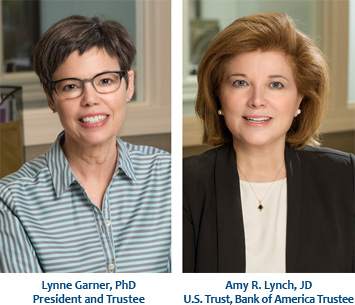Letter from the Trustees

Hello Friends,
As we reported in a recent issue of Practically Speaking, we are suspending the 2019 cycle for the Another Look: Better Health for Elders in Care Facilities grant program. During this time, we’ll be reviewing the accomplishments of our grantees and developing resources that can be used to assist them in reaching non-academic audiences who have responsibility for the care of elders in facilities. We’re also analyzing whether the requirements that we built into the structure of the program still make sense.
For example, the Another Look program requires that researcher work a stakeholder — an organization that represents potential users of the knowledge created by the study. We believed that this link with the end-user helps ensure that the research will lead to practical benefit. After making 30 awards, we’re curious how this researcher-stakeholder relationship works, so the Donaghue staff members are getting in touch with the individuals from the stakeholder organizations to ask them. Some of the functions that stakeholders have been given to assist with the studies are to help define the research question and to provide an “on the ground” perspective to researchers as they develop study protocols and interpret findings. Some stakeholders have also provided logistical assistance with the conduct of the study, such as providing the data. We get reports from our grantees on how they’ve worked with their stakeholder, but we are interested to know how this experience was from the stakeholder’s perspective.
A second feature of the Another Look program is the requirement that researchers use existing data in the study (hence, its name); this program does not support the cost of data collection. The existing data may be from the Medicare program, previous research conducted by the grantee, or data that is standardly collected by the care facility. This feature allows Donaghue to be a high-value funder because we don’t have to pay for the data collection and can therefore support more research projects with the resources earmarked for Another Look. We were also persuaded to use this requirement because it is more efficient from the perspective of society’s resources for research. The data used for these studies are available because either taxpayer or charitable dollars have already invested in their availability. Of course, we understand that this requirement limits topics that can be considered for an award, and although we haven’t had a lack of suitable applications to choose from we are interested in considering whether the program should support research that requires the use of new data.
We’ve already learned quite a bit from our analysis of these two features of the Another Look program. We remain committed to the importance of funding research on the health of elders, but we expect that our efforts during this year will result in some changes when it reopens.

Amy R. Lynch, JD
U.S. Trust, Bank of America, Trustee

Lynne Garner, PhD
President and Trustee